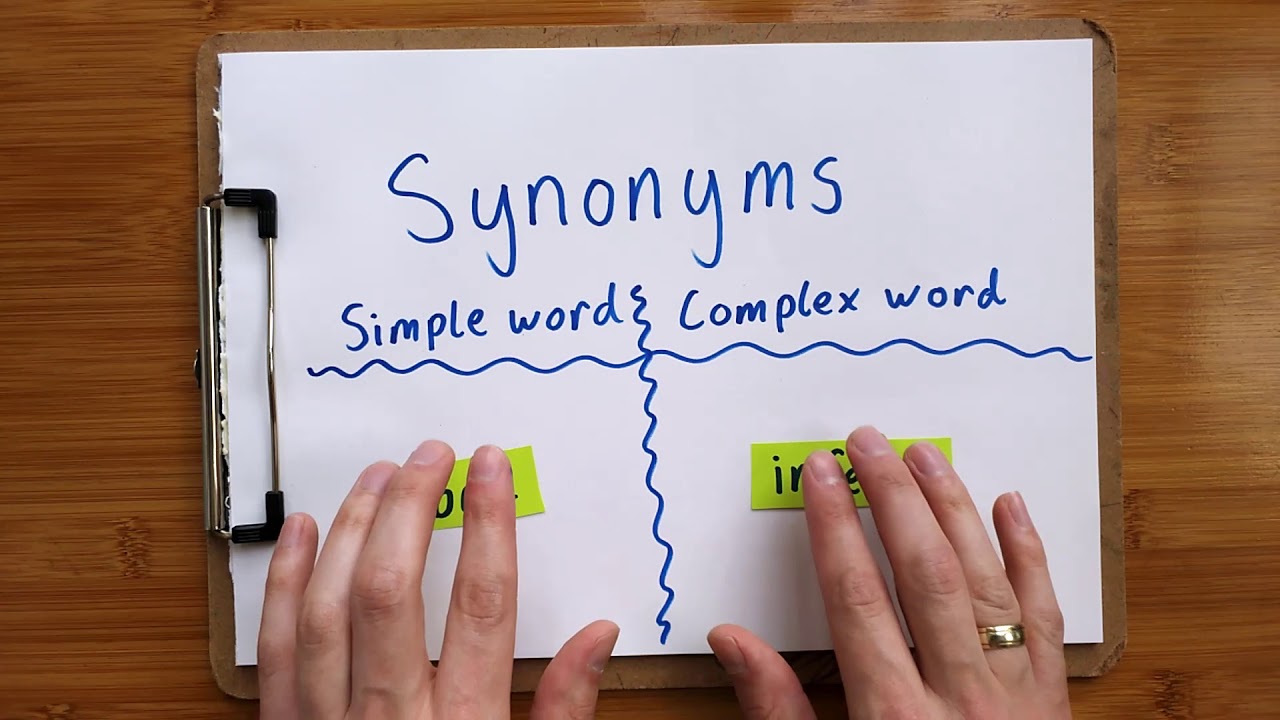The Importance Of Learning Subjects And Synonyms To Improve Your Writing
Effective writing should be clear, accurate, and concise. When you are writing a paper or constructing a simple sentence, try to get your ideas across in such a way that the readers will understand them effortlessly, unambiguously, and rapidly. To construct sentences that reflect your ideas, express one idea per sentence. This is where Subjects and Synonymscome in. In order to write effectively, one must know how to use Synonyms and Subjects accurately when forming a sentence. Jump into this article to learn how to use this mechanic appropriately.
What Are Synonyms?

What are Synonyms?
Synonyms are two distinct words with the same or very similar meanings. They can be any part of speech (which includes verbs, adjectives, adverbs, nouns, or prepositions), as long as both words are the same part of speech. This means that they must both be nouns or verbs.
Why Are Synonyms Important?
It is critical to keep your audience interested in your writing. Consider your own reading experiences when it comes to essays, novels, or articles. What drew you into the writing? We may be drawn in by the content, but it is the language and word choices that keep us reading. It becomes tedious when a writer repeatedly uses the same word to describe or show action. If, on the other hand, the writer employs a wide range of words, the overall piece becomes more descriptive.
Synonyms are important for expanding your vocabulary as well as improving your writing. The more you intend to read, the more your vocabulary will expand. Learning synonyms for various words is one way to improve one's knowledge.
Finally, synonyms are useful for thinking about things in new ways. You want to be able to express yourself as clearly as possible, which can be accomplished by selecting the best word to describe the situation or person.
How To Find Synonyms In A Sentence?
A thesaurus is the quickest way to find a synonym. These are available in print, online, and even though computersoftware. Reading more is another way to find synonyms. As previously stated, the more you read, the more vocabulary you will encounter. It will inspire you to use new words in your own writing. To ensure that you keep the same overall meaning in the sentence, consider the connotation, which is the general idea or feeling that the word invokes in addition to its literal meaning when choosing a synonym.
- rich - wealthy
- strong - solid
- extroverted - outgoing
- essential - necessary
- snowy - wintry
- hot - scorching
- late - tardy
- fast - rapid

What is a Subject? English Grammar for Beginners | Basic English | ESL
What Are Subjects?
A subject in a sentence is a noun, pronoun, person, thing, or place that performs the task or is asked/instructed/suggested to perform it. In other words, the verb is performed by a subject' in a sentence. Once you've identified the verb,' it's very simple to identify the subject' in a sentence. The subject is the person who does the verb or is expected, told or instructed to do so. In its most basic form, the subject refers to the performer of the action or to what (or whom) the sentence is about.
Why Are Subjects Important?
A subject is an important part of a sentence because it indicates an action and who is performing it. To write a cohesive and interesting literary piece, it is necessary to have a good understanding of how a subject is used. A clause or a sentence without a subject does not make sense in terms of who is performing the given action. This is due to the fact that the main noun or a pronoun is required to indicate the "doer" of the action. The use of a subject provides readers with a comprehensive understanding of what the fictional work is about or about whom the author is writing.
What Is The Easiest Way To Spot The Subject In The Sentence?
The clearest way to identify the subject of a sentence is to convert it into a yes-no question (a question that can be answered with either 'yes' or 'no')." In English, questions are formed by reversing the order of the subject and the first verb that follows it. He has the ability to keep a plant alive for more than a year.
If we want a 'yes' or a 'no' answer, the appropriate question is:
Will he be able to keep a plant alive for more than a year?
Here, 'he' and 'can' have switched places, implying that 'he' must be the subject of the first sentence.
Conclusion
It is critical that you have a thorough understanding of the subject and synonyms in order to write well-written compositions. This is one of the most basic and fundamental concepts in grammar, so you should really master it before moving on to more complicated ones. With the simple explanations, examples, and tips provided in this article, studying synonyms and subjects should be easy.